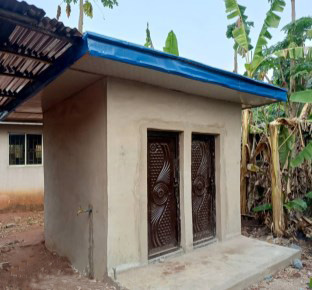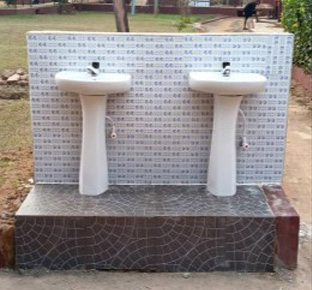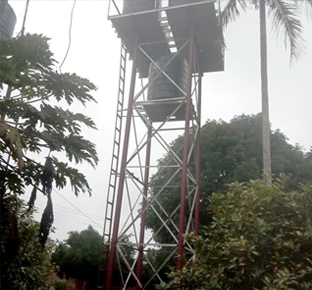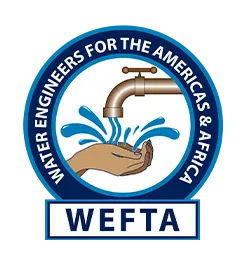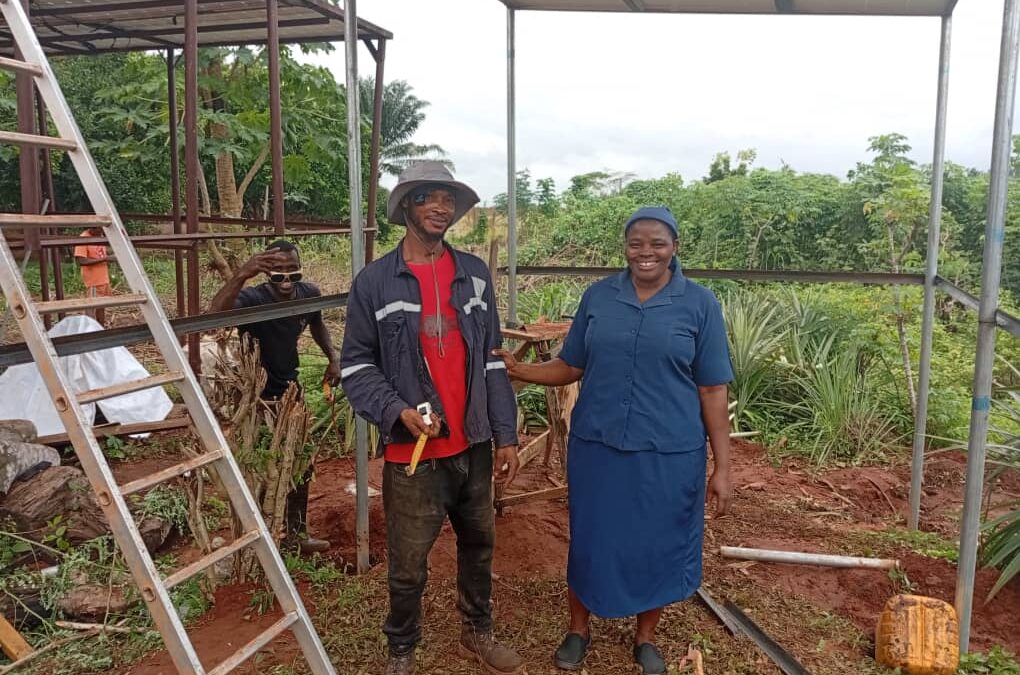Water and Sanitation Upgrades Bring Life-Changing Impact
In a remote Nigerian community where individuals affected by leprosy live in designated camps near a healthcare Centre, access to safe water and sanitation had long been a persistent challenge. The Daughters of Charity, with support from WEFTA, Dom Nwachukwu of Groundwater Development and Engineering, Ltd., and its donors, recently completed a transformative WASH (Water, Sanitation, and Hygiene) project aimed at improving living conditions, dignity, and health outcomes for residents, patients, and staff.
The project’s original goals were straightforward yet ambitious: provide consistent water access through a borehole and overhead tanks powered by solar energy; construct and rehabilitate toilets and wash hand basins; and promote hygiene and environmental health practices in the Centre and surrounding camps. With 3,634 people directly served—1,694 adults and 1,940 children, the project has brought measurable improvement to both infrastructure and well-being.
Exceeding Expectations
Despite economic challenges, including rampant inflation and currency devaluation that affected procurement, the local team adapted by sourcing materials from wholesale markets and prioritizing urgent needs. The project exceeded expectations in some areas—such as responding to an unexpected problem of open defecation by constructing additional toilets beyond what was initially planned.
Solar-powered water systems were installed, complete with overhead tanks for reliable distribution. New and rehabilitated bathrooms replaced makeshift facilities once made of sticks and torn cloth. Handwashing stations, menstrual hygiene bins, and cleaning supplies were distributed. Erosion control work and critical maintenance added resilience. Importantly, beneficiaries received training to ensure proper use and care of all new facilities.
For residents like Mama Egba, an elderly woman living with secondary disabilities from leprosy, the impact has been deeply personal. “Before this project, I had to skip bathing some days because it was too hard to fetch water and find privacy,” she shared. “Now, I can bathe as I want, and I no longer worry about where to go when I need the toilet. I feel comfortable and human again.”
Staff at the Centre also report meaningful improvements in their work environment. Nurses on night shifts, surgical teams in the theater, and administrative personnel using computers have all benefited from the inverter system installed as part of the project, which has reduced reliance on diesel generators, minimized noise and air pollution, and ensured uninterrupted power. “This place is sweet now—24 hours of light is good too!” one outpatient exclaimed.
Restoring Dignity, Well-being, and Hope
Beyond infrastructure, the cultural shift has been remarkable. Camp residents now proudly talk about how their homes resemble “those in the cities,” praising the tiled bathrooms and running water. A new habit of frequent handwashing has even become a point of humor and pride—what the community jokingly calls a “handwashing competition.”
In the words of one Sister overseeing the work, “The joy is radiant. People have gone from silent suffering to laughing together about who washes their hands the most. That’s what dignity looks like.”
This project is a powerful example of how targeted WASH investments, especially in underserved communities, can deliver not only essential services but also restore dignity, well-being, and hope.
